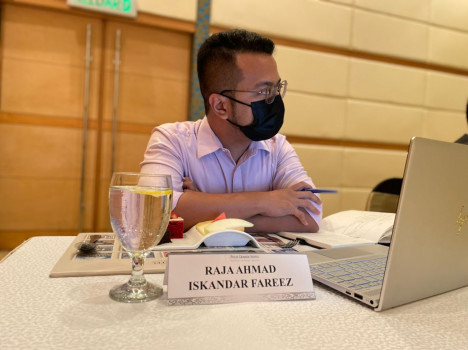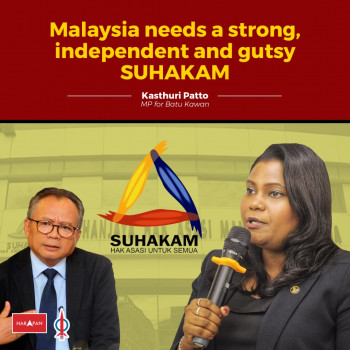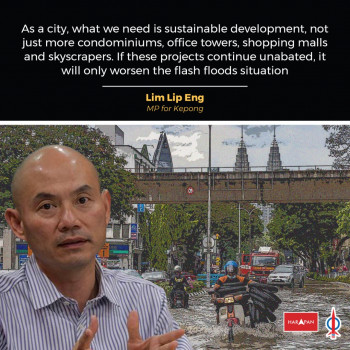When the current Penang government was elected in 2008, we were introduced to the CAT maxim of Competency, Accountability and Transparency. Of course, words mean nothing without actions and in this case, no one can deny that huge strides have been made.
Five years down the road, we now have a far more transparent state government through the implementation of an open tender system for all public procurement contracts, a Freedom of Information enactment, annual public declaration of assets by the entire state executive council including the chief minister, and a genuine attempt to restore the third vote to return local democracy to Penang.
To be honest, I think it is strange that these very obvious and logical policies implemented by the state government should be considered ground-breaking, because everywhere else in the world, they are simply called norms. I guess this really reveals how far our country has yet to go, especially when Penang is the only state in Malaysia to have implemented some of these policies.
That said, the effort is far from over. There is still great room for improvement, and that is where public forums and dialogues such as this one today will come in useful. It will not only help promote better understanding of government processes but also help to gather ideas that can improve the efficiency of public service delivery.
This is why the Penang Institute is constantly encouraging and organising community engagement activities, in order to develop a synergy between civil society and the State. Such a relationship is especially relevant to us here in Penang, where we have traditionally had an active citizenry, with many well-established NGOs and community groups playing a significant role in challenging the state government to push its reforms further and faster.
As you are all undoubtedly aware, development pressures have featured prominently in the debate and dialogue within the Penang community over the last few years. Moving forward, we need to ensure that there is a clear strategy that is able to serve the needs of all stakeholders, be it the State, commercial interests, the people of Penang and even the environment in the most efficient and sustainable manner possible, subject of course to resource and systemic limitations.
Thus, it is hoped that the soon-to-be-launched Penang Paradigm, which is the Penang Institute’s proposed development blueprint for the next decade, will set out a strategy for doing just this. We believe that while development is inevitable, its outcomes need not necessarily be detrimental to society or the environment.
In this context, it important that we understand and put in place policies, structures and initiatives to ensure that the planning system is as open, transparent and accountable as possible. For example, we need to embed the bottom-up principles of participatory planning within our systems by providing opportunities for meaningful stakeholder participation.
I am glad to say that we have already taken baby steps in this direction. Last year, the Penang Island Municipal Council (MPPP), in collaboration with the Penang Women’s Development Corporation (PWDC), began a pilot project at the high-rise flats on River Road, where extensive community engagement was conducted through focus groups and even a community vote to determine their infrastructure needs.
In Province Wellesley, a similar programme was conducted at Ampang Jajar. These efforts are encouraging, and should be further expanded and supported by the State.
In terms of macro development, there is also a need to integrate planning across the various tiers of government and especially between the mainland and the island. We should also begin to consider incentive-based zoning and more intuitive development charges and conditions in order to nudge the private sector towards the “right” types of development that is needed by society.
At the same time, we should also work towards making planning applications more accessible to the public, and where possible ensure that existing planning structures and bodies such as the SPEAD Council are more inclusive in representation.
In other words, there is a need to improve and enhance the platform for community engagement within the planning system in order to ensure that future development, and the benefits of future development, can be decided and distributed more democratically.
As such, I am hopeful that today’s forum can serve as a starting point in exploring, understanding and sharing knowledge of how these processes operate so that we can all engage with them more effectively.
_____________________________________________
* This speech was given at a forum titled “Planning decisions and appeals: Who speaks for the public?” on 2 February 2012, jointly-organised by the Penang Institute and the Penang Forum. Zairil Khir Johari is a member of the DAP Central Executive Committee.



